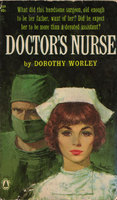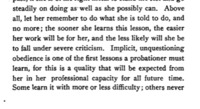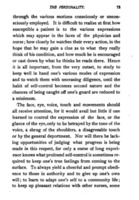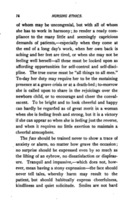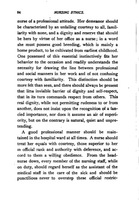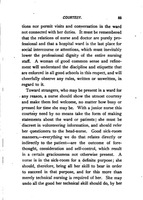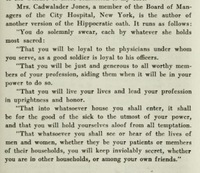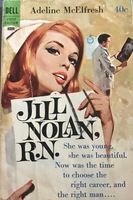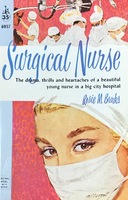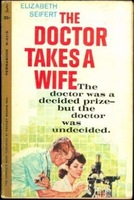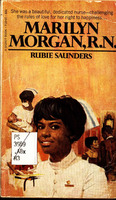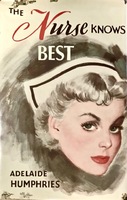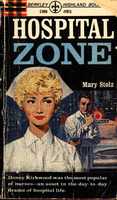Handmaidens
Nurses have often been depicted in mass media as mere extensions of a doctor's supreme skill and wisdom. In fact, Florence Nightingale herself emphasized that nursing was not to be confused with medical care. But as the profession developed in the 20th century, the work functions and expertise of nurses grew beyond Nightingale's vision and the profession has battled for recognition and respect as an autonomous and skilled profession.
The notion of nurses as subservient helpmates might in part be related to rigid hospital hierarchies, workplace routines, and professional rituals. For example, nurses were expected to stand in the presence of doctors, relinquish their chairs to doctors, hold the door open for a doctor, and carry his medical charts. The hierarchical structures of hospitals put student nurses (probationers) at the bottom, subject to orders from doctors, head nurses, and nursing student supervisors—obedience was non-negotiable. Nurses were also trained to display a complacent and quiet demeanor.
Despite stressing the importance of developing the content and character of young student nurses, this socialization process wasn't a manipulative ploy; nurse educators sought to imbue young nurses with a sense of competence by giving them the skills and self-control needed to stay calm through chaos. A focus on discipline and obedience was about teaching nurses to rely on clinical procedures and to assuage patients' anxieties by modelling relaxed confidence.
Don't forget to click the images on this page to open up a lightbox gallery with more examples, images, and quotes!
Nurses in romance novels are often awe-struck by brilliant doctors. Alternately, they are described as "belonging" to a particular doctor. Earlier romance novels describe nursing practices with more detail and accuracy and their characters act according to actual hospital etiquette guidelines: nurses addressed doctors only by title and last name, reported concerns to their nurse supervisor instead of a doctor, and requested permission to escalate concerns if their nurse supervisor was unable to solve it.
But romance novels don't always promote the nurse-as-handmaiden stereotype. Later published works especially favor a plucky protagonist who openly challenges know-it-all doctors, rude patients, and jokes with other nurses about the "nurse-doctor game." Occassionally, the protagonist expresses dismay at herself for having stepped out of line but usually the circumstances seem to justify her actions. Though nurse training advised loyalty and obedience to doctors and the hospital, in romance novels the nurse's loyalty ends when her submission to hospital hierarchy compromises patient care.
Critical Thinking Prompts
-
Do representations of nurses in popular culture still trivialize the role of the nurse? For example, do TV shows portray doctors as more admirable or knowledgable than nurses?
-
How about other forms of mass media? For example, how are nurses portrayed in hospital advertising and promotional campaigns?
-
Can you think of other industries that depend upon hierarchical organization that results in certain roles being misunderstood as subservient or less skilled?

